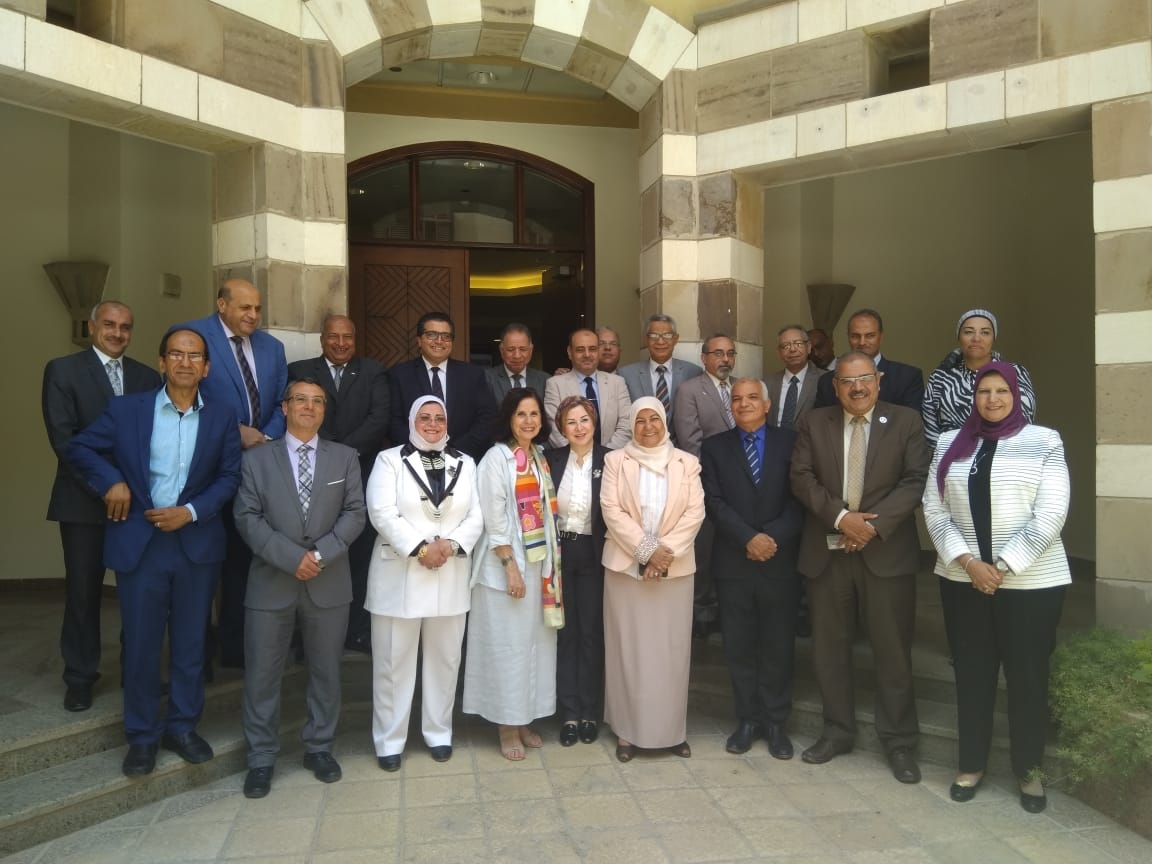
The Middle East Institute of Higher Education (MEIHE)
- Academics
- Departments
- Applied Linguistics and Educational Studies
- The Middle East Institute of Higher Education (MEIHE)
By connecting universities to schools, European universities to Arab universities, academics to practitioners, and policymakers to students. The institute utilizes cutting-edge research to incubate educational reform.
The School University Partnership (SUP) now includes service education by expanding the partnership between university students and school pupils to engage in Institutional Improvement plans.
Middle East Institute of Higher Education (MEIHE) contribution to Egypt
- Outreach to 9 Faculties of education under the Project Action Research For All Schools ARAS. What this has meant is that MEIHE has signed agreements with nine faculties of education in upper, middle, and lower Egypt to train their graduate students and faculty on how to conduct action research. Through funding it received from Ford MEIHE was able to improve the writing of the thesis and support the candidates but also in the meanwhile to improve the teaching and learning in 100 Schools as a result of action research.
- Outreach to 250 trainees for thesis writing on action research from national universities.
- Development of an ARAS training kit accredited by the Government through the Professional Academy for Teachers PAT.
- Development of a unit for Action Research at PAT through the project.
- Using the kit and the action research program to train 750,000 teachers from Public schools seeking promotion through PAT.
- Developing three centers of excellence with trained trainers for Action Research in three universities to spread the culture in Aswan, Ain Shams and Alexandria, and the surrounding universities.
- Courses on Action research as a result of the program established in Helwan and Alexandria.
- Policy brief produced on action research.
- The kit will be used this year regionally in the various governorates.
MEIHE, the Department of Educational Studies at The American University in Cairo (AUC) was awarded a three-year TEMPUS/EU grant in October 2012. The project aims to build the capacity of selected faculties of education and higher education institutions in the MENA region by introducing them to international best practices from the EU in three strategic areas: action- research, effective practicum, and school-based teacher Continuous Professional Development (CPD).
The project aimed to strengthen partnerships between universities and schools. Learning resulting from this project will feed into two regional centers of excellence (PAT and QRTA) for sustainable capacity building of higher education institutions across the region. In addition, the project created a collaborative network between faculties of education in some EU countries and some selected partners in the MENA region.
The universities from the EU are the UK: Institute of Education, University of London; Leicester University; Open University; Malta: University of Malta; Sweden: University of Stockholm. The Universities from MENA are Egypt: American University in Cairo (Main Applicant of grant); Assiut University; Helwan University and Alexandria University; Lebanon: American University of Beirut; Universite de Saint Joseph; Palestine: Bir Zeit University; Al Najah University.
Emphasis is placed on research, documenting best practices in the EU, taking stock of the situation in the MENA region, exchange study visits between all partners, and the dissemination of the results of training, experience, and collaborative learning in workshops, publications, and Videos. All these activities resulted in the Capacity Development of Faculties of Education (CDFE).
- Supported the mobilization towards reform in all faculties of Education through four national workshops reaching 600 faculty members.
- Supported the strategic planning towards reform through four planning and transformation workshops with the Supreme Council of Universities.
- Produced a strategy policy paper that will be piloted in Zagazig, Ain Shams, Assiut, and Alexandria.
- Supported the Faculties of Education by offering research on best global practices and programs in international schools of education.
- Supported the reform process through international higher education experts from Finland on two consecutive visits with participation from all FOE deans and other experts.
This is a European Union-funded program that AUC competes for at the level of higher education. MEIHE was awarded this grant for 750,000 Euros based on a proposal presented to the EU around the establishment of school-university partnerships for the provision of professional development strategies that would lead to the improvement of both faculties of education and schools that are appended as laboratory schools to the various faculties.
The project entailed signing an MOU with both the Ministry of Higher Education and the Ministry of Education to allow for the partnership to happen. The project is very labor-intensive and is a consortium partnership between eight universities in Europe and Egypt and the consortium is led by MEIHE at AUC. The Project has very many activities around mentorship, training, capacity development, and the development of materials. The strategies used are the development of peer communities of learners at the School and University levels. Moreover, the project, through twinning systems between European and Egyptian universities aims at transforming classroom teaching, learning, and management. Much research is involved in the project to pull out the evidence for the transformation.
A school-university partnership was established for the first time as part of both pre-university and university reform to build the capacity of faculties of education to enhance and modernize continuous professional development in the Egyptian school context.
1. Protocol signed with the Minister of Education and the Minister of Higher Education to Establish Professional Development Lab schools in Egypt
2. 43 Professional schools established
3. 150 mentors trained
4. 100+ peer communities of learners developing (each with a membership of 10-15 professionals)
5. Pedagogical materials being developed to be accredited by the government
6. Capacity building of the quality assurance units in schools
7. Ongoing professional development of schools